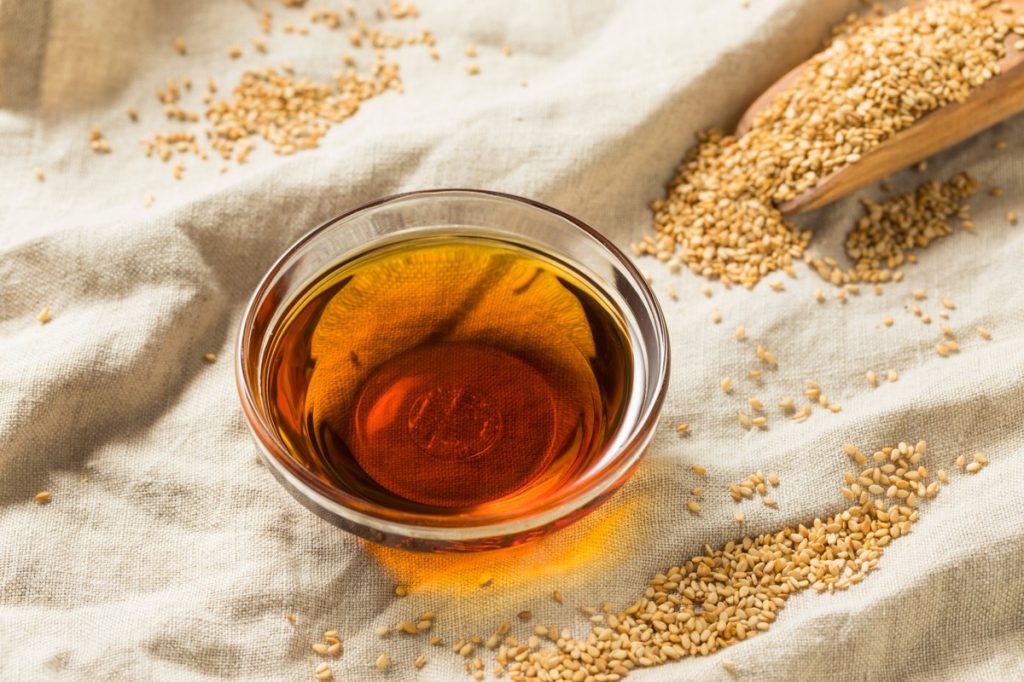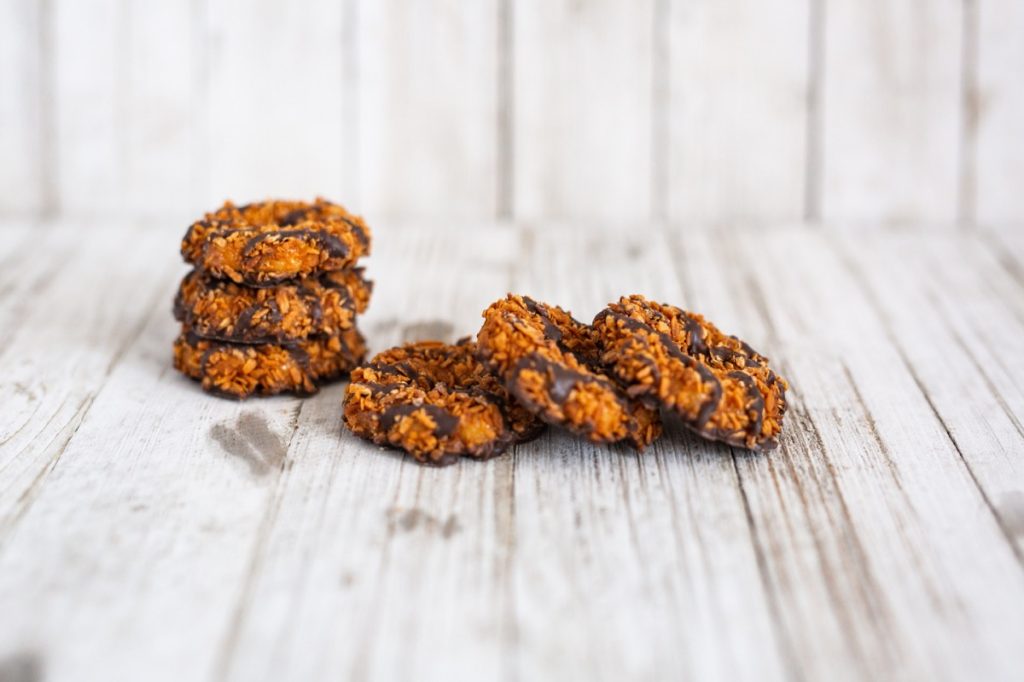Never Store This Popular Kind of Oil in Your Pantry, Experts Warn
Don't run the risk of letting your oil go rancid.

Having a well-stocked pantry makes cooking that much easier—after all, it's a place where all your recipe basics are within arm's reach. But experts say that far too often, we store our staples there when they would actually benefit from being refrigerated or frozen. In particular, there's one type of cooking oil that's prone to rapid rancidity, which can not only change the flavor of your food, but put you at risk for foodborne illness. Read on to find out which type of oil you should never store in your pantry and how to spot a bottle that's gone bad.
RELATED: If You Notice This on a Potato, Don't Eat It, Experts Warn.
Sesame oil and other "exotic oils" should never be stored in the pantry.

When oils oxidize, they begin to go rancid. As they decompose, they can give off foul odor or taste, and, if consumed, can make you sick. Yet not all oils are at equal risk of rapid rancidity—some go bad faster than others.
The Chicago Tribune reports that sesame, olive, canola, and peanut oils are all "major candidates for fast rancidity, and should all be stored in the refrigerator or freezer." While oils like vegetable oil are also susceptible to rancidity, Epicurious points out that "[in] toasted versions like Asian sesame oil or toasted nut oils, the reaction happens especially quickly, since these oils were already exposed to heat when they were made."
RELATED: This Is the New No. 1 Cause of Food Poisoning, CDC Study Says.
Products that contain these oils can also quickly become rancid.

Besides bottled oils, products that contain these oils can go rancid quickly, too. This may mean that your usual pantry staples such as crackers, nuts, or cookies may become rancid more quickly than you're accustomed to if they contain these ingredients. Fats that are solid at room temperature, like lard, coconut oil, and chicken fat, are less prone to rancidity, since these saturated fats are more chemically stable, Luke LaBorde, PhD, an associate professor in the Department of Food Science at Penn State University, told Epicurious.
Consuming rancid oils could make you seriously ill.

In addition to affecting the flavor of your food, rancidity can have serious health consequences. "They lose their vitamins, but they also can develop potentially toxic compounds," lipid specialist and University of Massachusetts professor Eric Decker told The Chicago Tribune. These compounds may heighten your risk of neurological disorders, heart disease, and cancer, experts say.
For more food safety news sent directly to your inbox, sign up for our daily newsletter.
Here's how to spot a problem.

The problem of rapid rancidity in oils is actually the result of America's growing appetite for "healthier fats"—namely, polyunsaturated fats as opposed to trans fats. "For all of their artery-blocking evil, trans fats had at least one big benefit: They were very stable, meaning they took forever to go rancid," reports The Chicago Tribune.
However, there are ways that you can still reap the health benefits of these types of oils without putting yourself at risk of foodborne illness or other health consequences. Be sure to buy these oils and the products that contain them in smaller quantities and always store them properly in the fridge or freezer, rather than the pantry, to extend their shelf life. Finally, smell oils to check for rancidity before consuming them. "The smell test covers just about everything," says LaBorde, adding that if your food or oil smells bitter, metallic, soapy, or "off" in some other way, rancidity is likely.
RELATED: Never Put This One Food Item on the Top Shelf of Your Fridge, CDC Says.





















